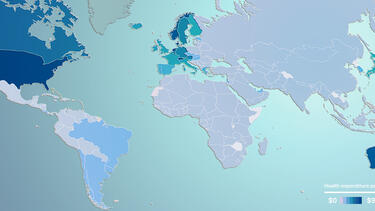All Insights Articles
How Global Should India Be?
Arvind Subramanian, chief economic adviser to the Indian government, on preserving the country’s stability and internal priorities while engaging with the world.

Can a Hospital Be a Global Citizen?
Dr. Michael Apkon ’02, president and CEO of Toronto’s Hospital for Sick Children, on his role and the hospital’s global approach.

Why Good Advice Is Often Bad
According to research by Yale SOM’s Jason Dana and Daylian Cain, psychological factors make unbiased advice a more difficult task than it appears at first glance.

What’s Next for China?
With China’s dramatic internal growth on shaky economic ground, the country is looking outward for its next act.
What's Next for the Eurozone?
Despite debt crises, a flood of refugees, and struggling economies, there are reasons to be optimistic about the Eurozone.

How Did Volkswagen Go Wrong?
Three Yale faculty on the causes and consequences of the Volkswagen emissions scandal.

Can the American Civil Religion Bridge the Partisan Divide?
Yale sociologist Philip Gorski on our competing national narratives and what they mean for contemporary politics.
Can We Change the Climate Conversation?
Yale's Brad Gentry on the state of the climate change talks and what a recent Global Network survey of MBA students tells us about the change in the discourse.
Don’t Assume a Fed Action Will Move the Market
Robert Shiller writes that our responses to a rate hike are unpredictable, even when we know in advance that it will happen.

How Should We Decide?
HEC Paris's Itzhak Gilboa on decision science, which draws on both mathematical models and human intuition to create formal frameworks for making effective decisions.
